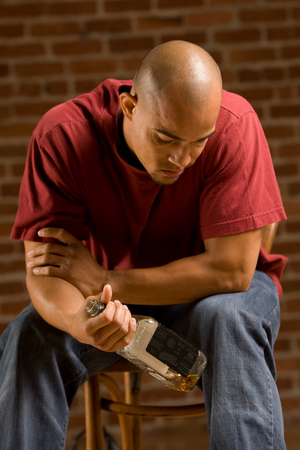Alcohol Withdrawal: What to Expect
Alcohol Withdrawal: What to Expect
What is withdrawal?
Withdrawal is what happens to your body if you’re a heavy drinker and stop drinking alcohol. Withdrawal symptoms can be mild to severe. How severe they are depends on the amount of alcohol you drink, how long you’ve been abusing alcohol, and whether you have organ damage.
Withdrawal can start 6 to 24 hours after your last drink and usually eases after a few days. Although withdrawal is uncomfortable and unpleasant, most people don’t have serious or life-threatening problems. Long-standing heavy drinkers however, can have severe withdrawal symptoms. This can lead to seizures and may be fatal if not aggressively treated. These people need to be under medical supervision during withdrawal.
What symptoms will I have?
Withdrawal symptoms can start if you stop drinking or cut back a lot on your drinking. Most people have mild symptoms.
Mild symptoms may include:
Trouble sleeping
Vivid dreams
Irritability
Anxiety
Mild stomach problems
Tremors or “the shakes”
Sweating
Heart palpitations
Increased blood pressure
More severe symptoms may include:
Fever
Hallucinations
Delusions
Confusion
Agitation
Seizures
Can I do this at home?
You may be able to stay at home while you go through withdrawal, but you need professional input before making this decision. The first step is to work closely with an addiction specialist who has a medical background or with your private doctor. Based on your drinking history and previous withdrawal symptoms, medical professionals may be able to predict how severe your withdrawal symptoms will be.
In some cases, if you are predicted to have mild withdrawal, you may be able stay at home. But you’ll need a caregiver to help you and daily visits and telephone calls from a healthcare provider such as a drug and alcohol nurse.
Your doctor may prescribe a tranquilizing type of medicine progressively smaller daily doses to help keep withdrawal symptoms in check. Your doctor may give you other medicines to help with headaches or nausea.
What happens if I am in a hospital or rehabilitation center?
You may need to stay in the hospital or at the treatment center if your doctor thinks you may have more severe withdrawal symptoms or you have another illness that can complicate withdrawal. Medical staff can more closely watch you when you are an inpatient and tranquilizing medicines can be given in higher and more frequent dosing.
Updated:
March 21, 2017
Sources:
Management of moderate and severe alcohol withdrawal syndromes, Up To Date
Reviewed By:
Fraser, Marianne, MSN, RN,Perez, Eric, MD
